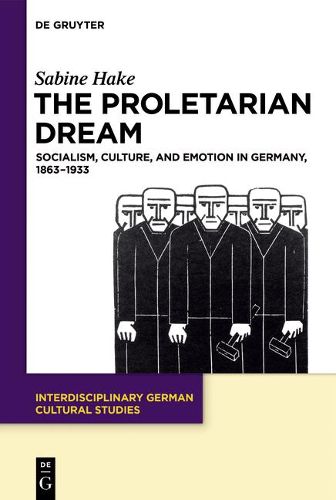Readings Newsletter
Become a Readings Member to make your shopping experience even easier.
Sign in or sign up for free!
You’re not far away from qualifying for FREE standard shipping within Australia
You’ve qualified for FREE standard shipping within Australia
The cart is loading…






This title is printed to order. This book may have been self-published. If so, we cannot guarantee the quality of the content. In the main most books will have gone through the editing process however some may not. We therefore suggest that you be aware of this before ordering this book. If in doubt check either the author or publisher’s details as we are unable to accept any returns unless they are faulty. Please contact us if you have any questions.
The proletariat never existed-but it had a profound effect on modern German culture and society. As the most radicalized part of the industrial working class, the proletariat embodied the critique of capitalism and the promise of socialism. But as a collective imaginary, the proletariat also inspired the fantasies, desires, and attachments necessary for transforming the working class into a historical subject and an emotional community. This book reconstructs this complicated and contradictory process through the countless treatises, essays, memoirs, novels, poems, songs, plays, paintings, photographs, and films produced in the name of the proletariat. The Proletarian Dream reads these forgotten archives as part of an elusive collective imaginary that modeled what it meant-and even more important, how it felt-to claim the name proletarian with pride, hope, and conviction. By emphasizing the formative role of the aesthetic, the eighteen case studies offer a new perspective on working-class culture as a oppositional culture. Such a new perspective is bound to shed new light on the politics of emotion during the main years of working-class mobilizations and as part of more recent populist movements and cultures of resentment.
Aldo and Jeanne Scaglione Prize for Studies in Germanic Languages and Literatures 2018
$9.00 standard shipping within Australia
FREE standard shipping within Australia for orders over $100.00
Express & International shipping calculated at checkout
This title is printed to order. This book may have been self-published. If so, we cannot guarantee the quality of the content. In the main most books will have gone through the editing process however some may not. We therefore suggest that you be aware of this before ordering this book. If in doubt check either the author or publisher’s details as we are unable to accept any returns unless they are faulty. Please contact us if you have any questions.
The proletariat never existed-but it had a profound effect on modern German culture and society. As the most radicalized part of the industrial working class, the proletariat embodied the critique of capitalism and the promise of socialism. But as a collective imaginary, the proletariat also inspired the fantasies, desires, and attachments necessary for transforming the working class into a historical subject and an emotional community. This book reconstructs this complicated and contradictory process through the countless treatises, essays, memoirs, novels, poems, songs, plays, paintings, photographs, and films produced in the name of the proletariat. The Proletarian Dream reads these forgotten archives as part of an elusive collective imaginary that modeled what it meant-and even more important, how it felt-to claim the name proletarian with pride, hope, and conviction. By emphasizing the formative role of the aesthetic, the eighteen case studies offer a new perspective on working-class culture as a oppositional culture. Such a new perspective is bound to shed new light on the politics of emotion during the main years of working-class mobilizations and as part of more recent populist movements and cultures of resentment.
Aldo and Jeanne Scaglione Prize for Studies in Germanic Languages and Literatures 2018